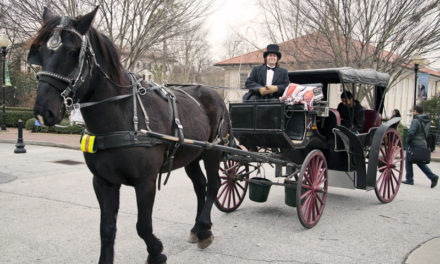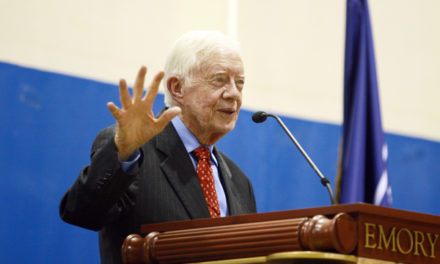The Pediatric Department of Emory University’s School of Medicine will partner with the Marcus Autism Center as well as the Yerkes National Primate Research Center to establish a new Autism Center of Excellence (ACE) in Atlanta.
The center has received a $8.3 million grant from the National Institutes of Health (NIH) in order to move forward with its projects.
Plans to create the center were officially announced in a Sept. 27 University press release.
The center will be one of three in the nation – including similar autism research centers at the University of California and Boston University – receiving funding this year from the NIH.
Ami Klin, a professor of pediatrics at the Emory University School of Medicine and the director of the Marcus Autism Center, will lead the research team in Atlanta.
Several other ACE centers competed for this NIH funding, and five of the six existing ACE centers did not receive renewal funding according to a Sept. 8 Pittsburgh Gazette article.
The innovative plan for autism research created by the Atlanta team in particular earned it a piece of this years’ $100 million grant money, which the NIH divides to distribute to different centers around the country that focus on autism research.
Klin told reporters after a press release that followed the announcement that the University would help establish a new ACE center in Atlanta that the grant is “quite an achievement for the state of Georgia.”
According to the University press release, the grant will support Klin and his team’s research projects which concentrate on identifying and treating autism spectrum disorders (ASD).
The researchers indicated in the press release that they hope to be able to supply the tools necessary for primary care providers to help patients earlier and more effectively.
Klin defines his primary research goal as trying “to identify individuals with ASD as early as possible so that potential therapies can have their maximal effect,” according to the website for the Emory Center for Translational and Social Neuroscience.
The new Atlanta-based research center will work toward this goal with four projects.
The first two will focus on the early identification of ASD based on the visual and social engagements of infants.
An additional project will aim to develop early treatments for children diagnosed with ASD, and the last will study the brain and behavior of nonhuman primates.
An article on Sept. 27 in the Sacramento Bee states that the model of autism based on nonhuman primates will help the rest of the ACE team study the genetics of the disorders, as well as observe social cognition, emotion and identity in those affected.
The ACE initiative is to change the course of autism before it becomes a major disability.
“The brain depends on human experiences in early development, so if we can capitalize on that initial window when the brain is still able to adapt and change, we believe we can raise the prospects of significantly altering the natural course of ASD and making a significant difference in the lives of children with autism and their families,” Klin said in the press release.
The Sacramento Bee article notes that the Atlanta ACE will bring together 25 researchers and physicians in eight laboratories, along with collaborators at Florida State University.
At a conference on Thursday, Georgia Governor Nathan Deal formally announced the grant and expressed enthusiasm for the autism center as well as what he noted as Klin’s leadership.
Klin said that the Atlanta ACE is “right now a moment of promise because we need to turn this into tangible and significant benefits for families and children with autism,” according to a Sept. 27 Public Broadcasting Atlanta article.
– By Celia Greenlaw
The Emory Wheel was founded in 1919 and is currently the only independent, student-run newspaper of Emory University. The Wheel publishes weekly on Wednesdays during the academic year, except during University holidays and scheduled publication intermissions.
The Wheel is financially and editorially independent from the University. All of its content is generated by the Wheel’s more than 100 student staff members and contributing writers, and its printing costs are covered by profits from self-generated advertising sales.




